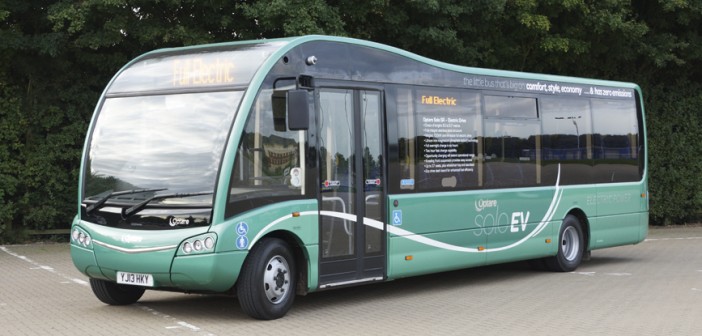Optare, the market leader for pure electric buses, has announced that it is well underway with a project that will increase the range of its MetroCity and Solo EVs to 200 miles with no net weight gain and no intrusion into passenger space.
“This ongoing project will double their range,” says Engineering Director Alastair Munro. “It is supported by our parent company Ashok Leyland, which has phenomenal technical ability, but at the moment the range extension project is managed by Optare.”
Phase two of the plan will be joint between the two companies, he adds.
“Much of the project is how we match high-performance motors and transmissions. We are also looking at battery technology, and how they are packaged.”
Mr Munro adds that a key part of extending the range of EVs is how on-bus heating is managed. “That can make a huge difference to energy consumption, and part of the project is to engineer things correctly to use energy in the best way possible,” he says, which may extend to pre-heating the bus during its overnight charge and adding insulation.
Keeping whole-life costs low is also a priority. “Almost anything is possible with an electric bus, but we have to be realistic. We could fit very high-performance batteries, but they would significantly increase the purchase price of the bus. It’s a balancing act between weight, passenger capacity – and how much the operator is prepared to spend,” he says.
Work to convert a demonstrator and the first of six in-service Solo EVs to double their range has already begun at the Sherburn-in-Elmet plant, with the last to be completed before June.
Mr Munro also confirms that an electric MetroDecker double-decker is expected to debut towards the end of 2016. It will retain the diesel version’s 18,000kg GVW and will not need to take advantage of the forthcoming relaxation of the maximum weight for two-axle PCVs to 19,500kg.


